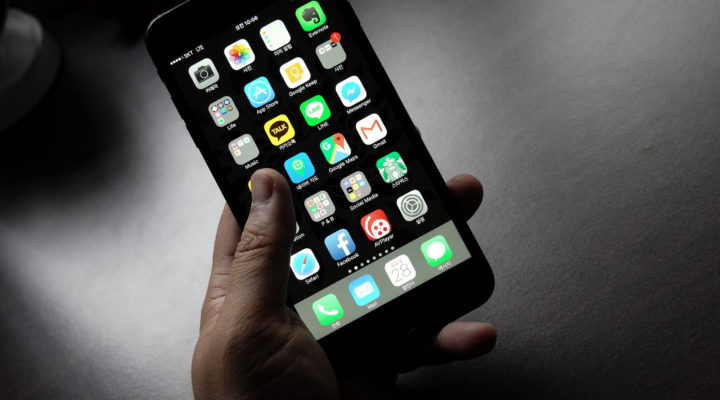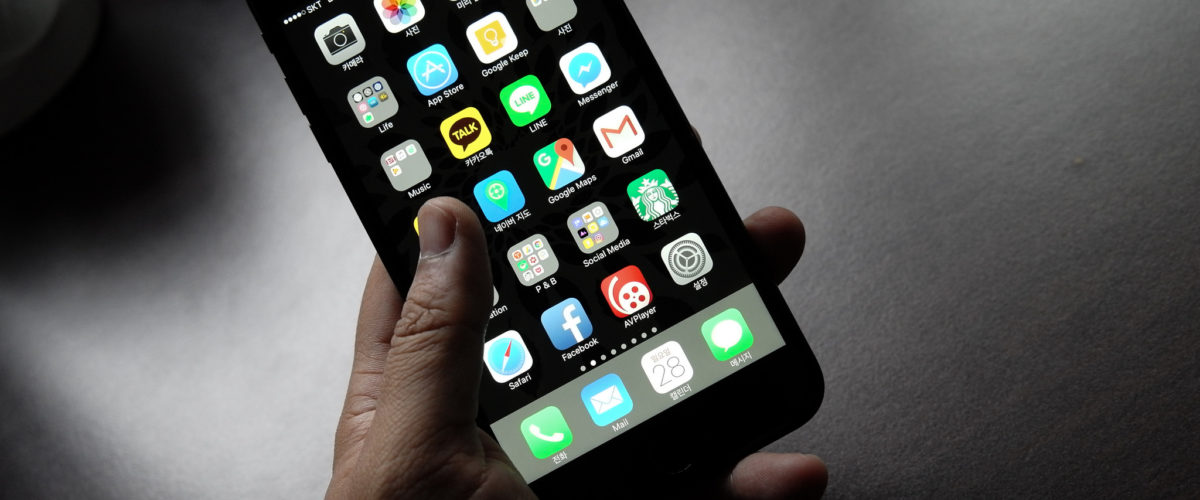James Roberts is no fan of people using smartphones in church, even if it’s to follow scripture readings.
For one, it can be distracting to others. And for the user, a Bible app can lead to checking texts, e-mails and social media – if only for a sec.
“We go looking for a scripture verse and next thing we know we are lost in the daily current of life,” said Roberts, a marketing professor at Baylor University and member of Calvary Baptist Church in Waco, Texas.
But Roberts’ isn’t a stodgy Baptist offended by technophile Millennials in the sanctuary. Rather, he is one of the nation’s leading researchers in the field of compulsive consumer behavior.

James Roberts (Photo/Baylor University)
And his 2017 book – Too Much of a Good Thing: Are You Addicted to Your Smartphone? – has landed him in the New York Times and other publications as an expert on the unhealthy relationships many Americans have with their smartphones.
While just about anyone can identify rude phone use, is it a stretch to call it an addiction?
“I’m not caught up in whether it’s called an addiction or a compulsion,” he said. “I am most concerned about when it starts to interfere with daily life.”
But many researchers are using the word “addiction” to describe extreme smartphone use, he said. Technology abuse can damage relationships and lives much the way alcoholism and drug addiction do, he said.
The experience of that compulsion is teased out by questions asked of smartphone users. The questions are the same used to diagnose substance abuse – and the answers often are the same in both groups, he said.
Plus, smartphone overuse has been shown to stimulate the brain like chemical addiction does, he added.
And a romantic partner preoccupied with a smartphone can be as alienating to a partner as drunkenness is, Roberts said.
The term “phubbing” instead of “snubbing” refer to people using their smartphones when present with loved ones or friends, he said.
Compulsive smartphone use can cause users to lose sense of time, place and who they are with. And healthy relationships require presence, he said.
For Roberts, this is where smartphone use during worship can veer into dysfunctional territory.
Smartphone addicts, he said, can “phub” other people “and maybe even God.”
It can happen innocently, he said. Someone launches their favorite Bible app and while using it inadvertently notices an e-mail from a boss or romantic interest. Or maybe they decide to quickly check the weather forecast for the day.
“The whole power of the smartphone is it’s distractability,” Roberts said. “You’re looking up something in Job but see texts and e-mails.”
He cited Proverbs 4:25 as cautionary verse against smartphone use in worship: “Look straight ahead and fix your eyes on what lies before you.”
That’s hard to do while gazing into a smartphone screen, Roberts said.
“We are such a distracted people,” he said. “My 2 cents is that church should be the one place we are not distracted.”


